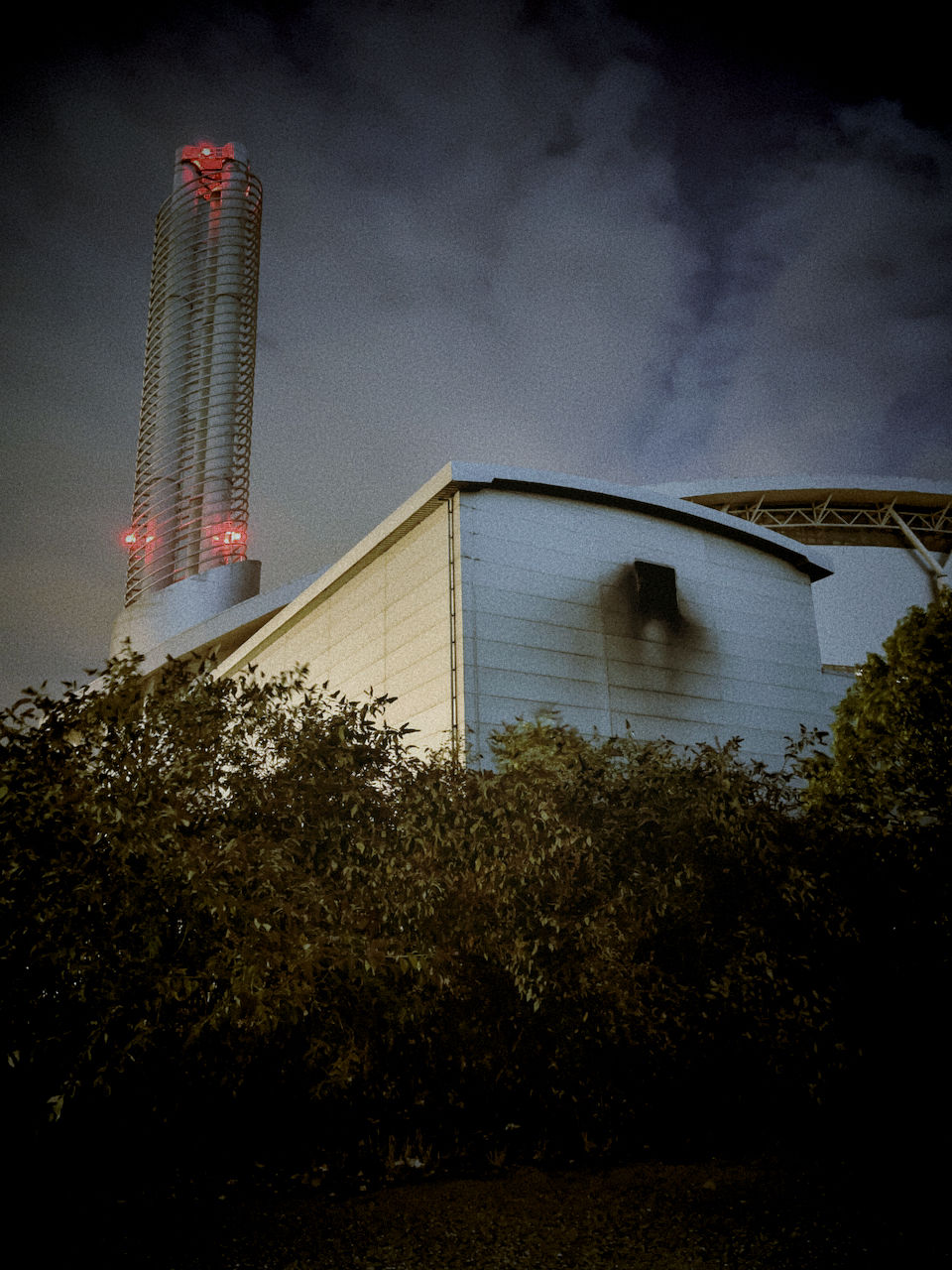The Local and the Nonlocal
- Chris Sciacca
- Jul 20, 2023
- 4 min read
Updated: Mar 4, 2025
In the past month I have been reaching out to recycling facilities in Sussex to understand the process of WEEE. In order to realize my goal of making microphones from 100% scrap material (which may or may not be possible) I need to have access to broken electronics. Unfortunately in an email exchange with Veolia Southdowns at their Newhaven Energy Recovery Facility I learned that it is against WEEE regulations to have access to such material. It seems as if the only access to this material is either to collect it myself and friends- or from local shops as I was advised (I'm not sure of any shop that holds onto broken electronics). They were very kind in returning my emails and also sent my message along to see if it would be possible to document the process inside the facility through sound. While there was a hint of possibility, the answer came back as a no. However, we did arrange a tour of their Hollingdean facility on Sept 22nd and I will hopefully understand a bit more of the process. I'm hoping they might be more open to a collaboration after an in-person visit, but if not then perhaps it's indicative of the nature of WEEE processing from a citizen perspective. With many companies touting sustainability and the move toward a circular economy, what are the barriers with electronics, as it seems like it has been holding onto the planned obsolescence scheme with a death grip. I imagine a Sisyphean mound of the world's dead earbuds if collected from everyone's clutter drawers at home.
This has always been something of a difficult spot as a documentarian: to get permissions into institutional agencies as an outsider. Its an acquired skill for sure and I have had success in the past, especially documenting protected, secured places like the port of the DFDS Ferry, where I had to comply with what I could and could not record for national safety reasons. I will forever be in awe of my favorite documentarian of all time - Frederick Wiseman, whose unrelenting films covering almost every institution in America such as education, healthcare, crime, welfare, military, animal experimentation, meat processing to name but a few. Since the edits of these say some things that do not align with how these systems wish to be portrayed, its amazing how Wiseman consistently got access and I always wonder how he pitches these things. While his documentaries appear objective, they are certainly not - something Wiseman himself ascribes. It's all about the edit. While I am not pointing fingers in any way, or am posting this as an indictment of failure (this is arguably what led to Ghana's drastic action regarding their portrayal of e-waste by the west as an environmental disaster) take a look at this promotional video from Veolia. I too wish to be part of the solution and not the problem, foster "sustainability" (I put this in quotes as I am suspect of this word and what it means).
Just as I have read about the mistrust of researchers and journalists in Agbogbloshie, I believe the same barriers occur here in the UK as well. I have decided to stop pursing the Ghanaian link to WEEE and focus first on what exactly happens here as it is also an equally important to the global circulation of e-waste. The difference is that the power dynamic and relationship is much more ethically difficult to navigate with many postcolonial nation's history of extraction and exploitation of resources. There even exists a nefarious power balance between the ... dare I say hyperobject of "University" as an outsider entity that acquires knowledge for gains that may have more to do with financial and political gains than the libertarian ideal of advancing knowledge for the benefit of humanity. Call me cynical.
I used the word hyperobject, perhaps in an overextended way but I would like to say that Tim Morton's concept is an interesting one to deal with issues that are impossibly beyond our capacity to meaningfully engage with them directly without existential feelings of uncanny negative emotions like confusion and hypocrisy. After watching the Veolia video, I will begin to try to see waste as a hyper object - massively distributed across time and space... ever-present in our lives and even reaching beyond space into earth. It is the quintessential problem of our time as its byproducts have contributed to global warming - as the term Morton prefers to us - and threaten our existence as a species. Morton does believe that we can't see hyperobjects, such as global warming in this case, can't touch them, that they do exist, that we are part of them and we should care about them. We can understand them in fragments but we can never bridge the gap between them as holistic things, and how they appear to us. We can come to know them experientially in fragments but they elude us in many ways which I will begin to look at next. However daunting and defeating it is to find ourselves in the chthonic crisis we now sense for our present time on earth, Morton does feel after knowing them, "we need philosophy and art to help guide us through". Is it too late or do we need to readjust our thinking to help us deal with the problem at hand?






Comments